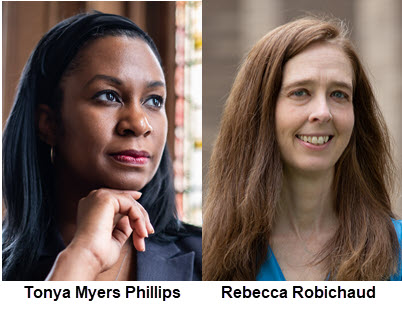Abstract
Excerpted From: Tonya Myers Phillips and Rebecca Robichaud, Detroit's Eviction Crisis: How Power and ARPA Funds Could Radically Alter It, 31 Journal of Affordable Housing & Community Development Law 333 (2023) (161 Footnotes) (Full Document)
 It's about power. In addressing sexual harassment by landlords, Professor Deborah Zalense wrote that to “analyze the power disparity, the court must first identify the power matrix between the parties, considering such factors as the gender, race and economic status of both the landlord and tenant, the housing market, and any other factors which contribute to an imbalance of power in the specific case at hand.” Zalense's words apply generally to landlord/tenant relations in eviction matters. In 2021, in the 36th District Court in Detroit, Michigan, which handles eviction cases, only twenty-one percent of tenants were represented by legal counsel. Ninety-one percent of landlords were represented. This power imbalance contributes to disruptive displacement from the home in seventy-five percent of cases with unrepresented tenants.
It's about power. In addressing sexual harassment by landlords, Professor Deborah Zalense wrote that to “analyze the power disparity, the court must first identify the power matrix between the parties, considering such factors as the gender, race and economic status of both the landlord and tenant, the housing market, and any other factors which contribute to an imbalance of power in the specific case at hand.” Zalense's words apply generally to landlord/tenant relations in eviction matters. In 2021, in the 36th District Court in Detroit, Michigan, which handles eviction cases, only twenty-one percent of tenants were represented by legal counsel. Ninety-one percent of landlords were represented. This power imbalance contributes to disruptive displacement from the home in seventy-five percent of cases with unrepresented tenants.
The power dynamics do not exist only in court. Detroit has a strong mayoral system. The federal government awarded Detroit almost a billion dollars in American Recovery Plan Act (ARPA) State Local Fiscal Recovery Funds (SLFRF) (hereinafter referred to as ARPA funds). But the actions of the Detroit Mayor's Office suggests a belief that the power lies with him and him alone as to how to utilize these funds, after the previous City Council agreed to a broad plan for use of the funds. Thus, the details of how almost a billion dollars is spent lies with the Mayor.
The Detroit Right to Counsel Coalition (DRTC) brought together legal service agencies, service providers, neighborhood organizations, and residents of Detroit with the united goal of passing a Right to Counsel ordinance in Detroit. The result of consolidating the power of these voices was that the Detroit City Council unanimously passed a Right to Counsel Ordinance into law on May 10, 2022.
As a result of the Mayor's nearly complete control of how ARPA funds are used, the Right to Counsel Ordinance remains underfunded, without a plan, at least publicly, for how to equitably implement the right to counsel for Detroiters.
This article examines how Detroit's use of ARPA funds concerning the recently passed Detroit Right to Counsel Ordinance is the latest reflection of institutional practices that perpetuate disparities in housing for Detroit's Black residents.
Beginning with the history of evictions and housing injustice in Detroit in Sections II and III, this article weaves through what occurred during the pandemic in Section IV. Section V explores how Right to Counsel came to be in Detroit and how it could be transformative. Section VI provides an analysis of how ARPA funds should be used in Detroit in light of the city's history and the Right to Counsel ordinance. Section VII looks at the perpetuation of power imbalance in how ARPA funds are used in Detroit.
[. . .]
Detroit is at an extraordinary juncture for radically altering housing injustice. The power dynamics that disproportionately benefit landlords and have created a legacy of housing injustice and inequity can be disrupted and systemic change implemented through a Right to Counsel for Detroiters facing eviction. For the first time since the system's founding, tenants have a legal right to receive legal representation in eviction proceedings. However, this disruption of power is being challenged by the City Administration and the Corporation Counsel, who at one point called the Right to Counsel Ordinance “horrifying.” While thousands of Detroit residents, including children, face housing instability, unsafe housing conditions, and an affordable housing shortage, the City Administration continues to make policy choices that undermine the will of Detroit's residents who have spoken through the City Council about needing this historic infusion of federal money to be invested in a more just and powerful future for themselves.
__________
Tonya Myers Phillips is an attorney who advocates for equitable and inclusive public policies. Tonya is the Community Partnerships & Development Director for the Sugar Law Center for Economic & Social Justice in Detroit and also consults with Michigan Legal Services on housing policies for low-income families as the Public Policy Advisor.
Rebecca Robichaud is the Director of Clinical Education and an Assistant (Clinical) Professor at Wayne State Law School. In the Fall of 2022 she co-taught the Community Advocacy Clinic with Ruth Johnson, policy director for Community Development Advocates of Detroit, and co-author Tonya Myers Phillips.


